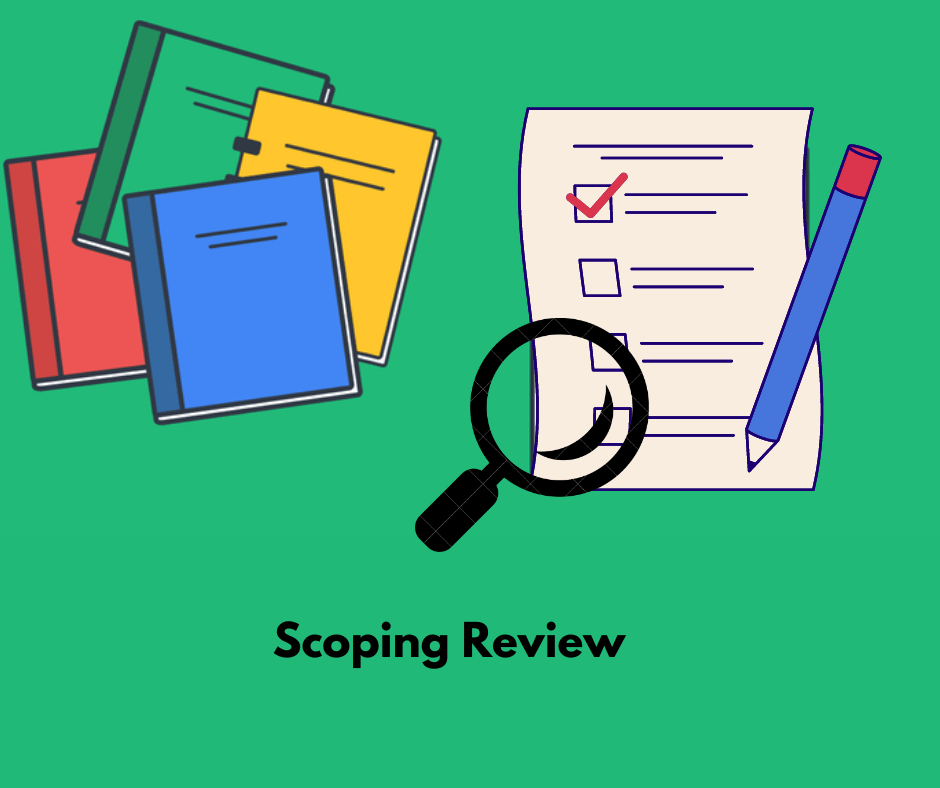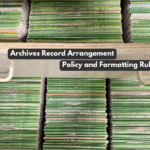An attempt to map the main ideas, categories of supporting data, and areas of unmet research need in a particular field or subject is called a scoping review. It addresses general research questions to give an overview of the body of literature already in existence, and its scope is wider than that of systematic reviews. To ensure thorough coverage, scoping reviews entail extensive searches across a variety of databases and sources, including grey literature. Instead of providing in-depth analyses of the studies’ quality, they usually concentrate on summarizing and classifying the results. Recognizing existing knowledge, pointing out areas of uncertainty, and guiding future research directions are the main goals. When examining new subjects with a varied and heterogeneous body of literature, they are helpful. Refining research questions and methodology for later systematic reviews can also be aided by scoping reviews.

A few essential characteristics set scoping reviews apart from other kinds of literature reviews. Among these characteristics are:
1. Extensive Research Issues
Scoping reviews address broad, exploratory research questions rather than narrow, targeted questions, with the goal of mapping the body of literature on a given topic.
2. Comprehensive Literature Search
To gather as much pertinent literature as possible, they entail thorough and methodical searches across numerous databases and information sources, including grey literature (such as reports, theses, and conference papers).
3. Including Standards
When it comes to a broad range of study designs and evidence sources, the inclusion and exclusion criteria are typically more expansive than those of systematic reviews.
4. Mapping the Evidence
The main objective is to map the body of evidence by providing a summary of the main ideas, different kinds of evidence, and features of the included studies.
5. Identifying Gaps in the Literature
Scoping reviews point out gaps in the body of knowledge, which can help determine future research priorities and point out areas that require more study.
6. Iterative Method
When new information becomes available during the review, the flexible and iterative process allows for modifications to the scope, search approach, and inclusion criteria.
7. User Engagement
To ensure that the review findings are pertinent and applicable, they frequently entail stakeholder consultation, including researchers, practitioners, and policymakers.
8. Lack of a formal quality evaluation
Scoping reviews usually concentrate on giving a descriptive summary of the available evidence rather than going into great detail with a quality assessment or risk of bias evaluation of the included studies.
9. Charting and Data Extraction
To make it easier to map important themes, trends, and gaps, pertinent data from the included studies is methodically extracted and charted.
10. Narrative Synthesis
A narrative synthesis of the results is provided, frequently augmented with tables, charts, and other visual aids to highlight important themes and trends and to illustrate the findings.
11. Reporting Guidelines
Scoping reviews adhere to strict reporting guidelines, such as the PRISMA-ScR (Preferred Reporting Items for Systematic Reviews and Meta-Analyses Extension for Scoping Reviews), to guarantee thoroughness and openness when disclosing information about the review procedure and conclusions.
Scoping reviews are distinguished by their wide range of applications, thorough search techniques, inclusive standards, and emphasis on mapping the literature to pinpoint important ideas and areas of unmet research need.
The library’s role in conducting the scoping review
Scoping reviews are conducted in large part by libraries and librarians, who offer knowledge and assistance at different points throughout the process. The library’s function in scoping reviews is examined in detail below:
1. Planning and Protocol Development
When conducting a scoping review, librarians can help with initial planning by defining scope, objectives, and research questions. They also assist in designing the review protocol to adhere to recognized standards and guidelines like PRISMA-ScR.
2. Literature Search Strategy
When conducting a literature search, librarians can assist with database selection, developing search strategies, and accessing grey literature such as reports and theses.
3. Conducting the Search
Librarians conduct searches across multiple databases and platforms, saving time for the research team and ensuring a systematic approach. They meticulously document the search process, including search terms, databases used, and the number of results, ensuring transparency and reproducibility.
4. Reference Management
Librarians use reference management software like EndNote, Mendeley, or Zotero to organize and manage references. They also de-duplicate search results to ensure each study is only considered once in the review.
5. Screening and Selection
Librarians can help with training and support for screening processes and with developing selection criteria.
6. Data Extraction and Charting
Librarians help develop standardized data extraction forms and ensure systematic data recording and organization.
7. Analysis and Synthesis:
Librarians can assist by providing tools and techniques for thematic analysis, data visualization, and using various software tools for data analysis and synthesis.
8. Reporting and Dissemination
Librarians provide writing assistance and ensure accurate citation and referencing.
9. Publication Support:
Librarians can offer assistance with the submission process as well as in identifying suitable journals or publishing platforms for the scoping review.
10. Training and Capacity Building
Libraries offer workshops, tutorials, and resources for conducting scoping reviews and literature searches.
11. Ethical and Legal Considerations
Copyright and Permissions: Librarians provide guidance on copyright issues, ensuring that any reproduced material complies with copyright laws.
12. Ongoing Support
Librarians provide continuous assistance and troubleshooting throughout the scoping review process. They also help with periodic updates to ensure the review remains current.
To summarize, the library plays a multifarious role in scoping reviews; this includes preliminary planning, thorough literature searches, data management, and continuous support during the review process.



